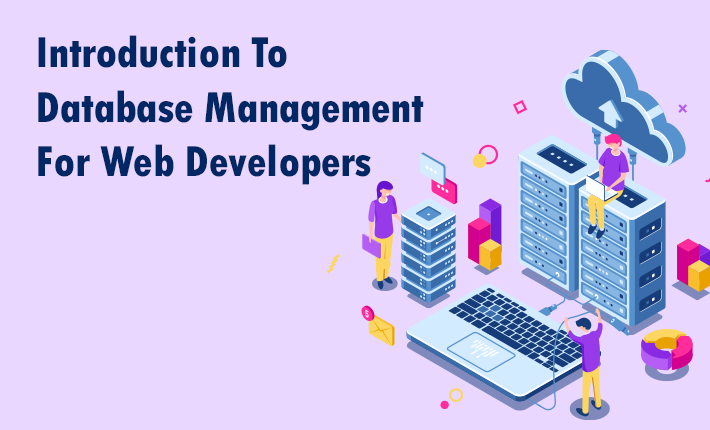Database management is a critical aspect of web development, enabling the storage, retrieval, and manipulation of data for web applications. As a web developer, understanding database management concepts and techniques is essential for building robust and efficient websites. In this blog post, we will provide an introductory overview of database management for web developers. We will explore the fundamentals of databases, different types of databases, and common database management systems. By the end of this guide, you will have a solid foundation to handle data effectively and make informed decisions when designing and implementing databases for your web applications.
I. Introduction to Databases:
We begin by introducing the concept of databases and their importance in web development. A database is an organized collection of data that provides a structured way to store, manage, and retrieve information. We discuss the advantages of using databases for web applications, such as data integrity, scalability, and data persistence. Additionally, we cover key terminologies like tables, rows, columns, and relationships.
II. Relational Databases:
Relational databases are the most widely used type of database management system. We explore the foundational principles of relational databases, including tables, primary keys, foreign keys, and normalization. Popular relational database management systems (RDBMS) like MySQL, PostgreSQL, and Oracle are introduced, highlighting their features and use cases.
III. Non-Relational Databases:
Non-relational databases, also known as NoSQL databases, have gained popularity for their flexibility and scalability. We explain the fundamental differences between relational and non-relational databases. Categories of NoSQL databases, such as document databases, key-value stores, column-family stores, and graph databases, are discussed. MongoDB, Redis, Cassandra, and Neo4j are examples of NoSQL databases we explore in this section.
IV. Structured Query Language (SQL):
SQL is a programming language used to manage and manipulate data in relational databases. We provide an introduction to SQL, covering common SQL statements, such as SELECT, INSERT, UPDATE, and DELETE. We also discuss SQL functions, sorting and filtering data, and joining tables to retrieve information from multiple tables.
V. Database Design Principles:
Effective database design is crucial for performance, data integrity, and maintainability. We explore the principles of database normalization, which help organize data efficiently and avoid data redundancy. We discuss the concept of entity-relationship modeling (ER modeling) to visualize relationships between entities and build effective database schemas.
VI. Database Connectivity in Web Development:
Web applications require interaction with databases to store and retrieve data dynamically. We explore different methods of connecting web applications to databases, including database drivers, object-relational mapping (ORM) frameworks, and APIs. We touch upon technologies like PHP's PDO, Python's SQLAlchemy, and Node.js's Sequelize.
VII. Database Security and Performance:
Ensuring database security is vital to protect sensitive user data. We discuss best practices for securing databases, such as strong authentication, user roles, and encryption. Additionally, we cover performance optimization techniques like indexing, caching, and database normalization to improve the speed and efficiency of database operations.
Conclusion:
In conclusion, database management is a critical aspect of web development. By grasping the fundamentals of databases, understanding different types of databases, learning SQL, mastering database design principles, and considering aspects such as connectivity, security, and performance, you are equipped to build efficient and reliable web applications. Embrace the continuous learning process, stay informed about industry trends, and leverage your database management skills to create exceptional user experiences through well-organized and optimized data management.





Leave a reply